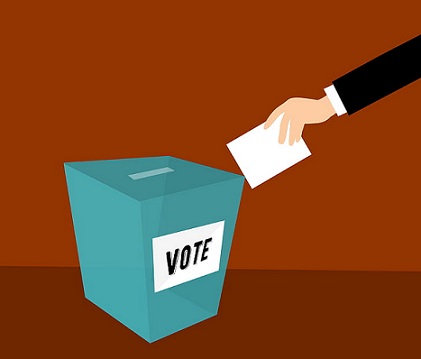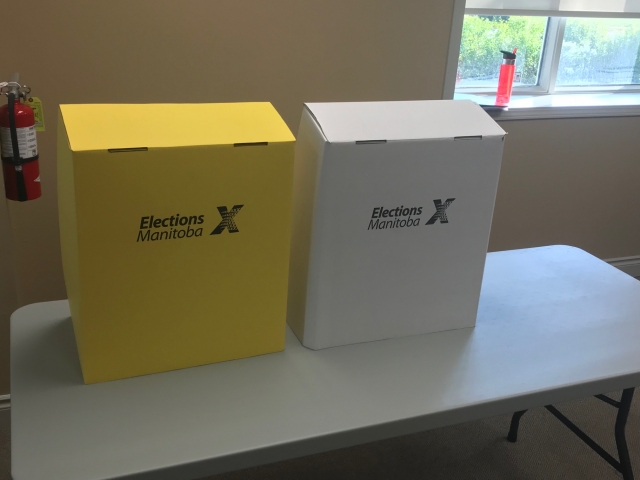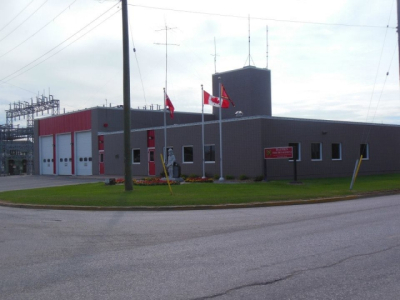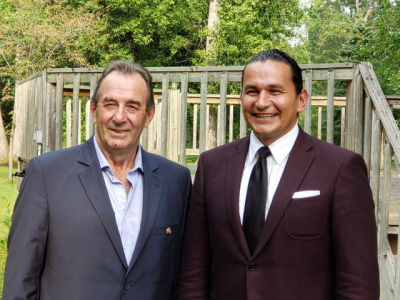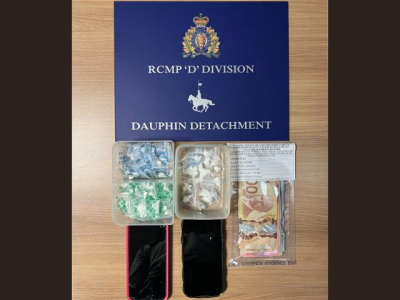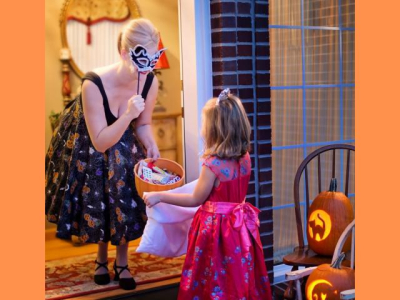 NewsNow
NewsNow
Today is the big day: the Manitoba Provincial Election. Voting stations are officially open as of 8 am and will be open until 8 pm.
When you go to vote, you need to make sure to bring your Voter’s Information Card and a few other things.
If you’re on the voters list, you have a few options:
Your first option is you can bring a picture ID, like a driver’s licence, passport, or treaty card.
The second option is two other pieces of ID that have your name, like a health card, or SIN card.
If you are on the voters list but don’t have ID, you must have a voter on the voters list with ID vouch for you.
Voters not on the voters list must have ID with their name and address on it and must take an oath claiming they haven’t voted anywhere else.
Be sure to stay tuned to 730 CKDM all day long as we will have up to the minute election coverage all day, with our live election show starting at 7:30 pm.
- Details
- Contributed by Josh Sigurdson
The Government of Canada has announced funding today through the Canadian Experiences Fund that supports the government’s recent announcement a new tourism strategy. Tourism serves as a huge economic driver for communities across the country, including rural areas.
A couple of Parkland communities have been named as recipients of the funding.
The first is the Dauphin Derailleurs Cycle Club, which received a grant of $335,000 to expand the multi-use bicycle trails in the Riding Mountain National Park area, including the development of a full-service trailhead with links.
Neepawa has received two grants. One grant of $150,000 is dedicated to the town to develop the Neepawa Area Multi-Use Trail Park, and the other grant of $99,999 will go to Farmery Estate Brewery to enhance the farm-to-table tourism experience.
Canadian communities big and small from coast to coast received funding equalling to $11,685,255.
The funds in Western Canada are delivered by Western Economic Diversification.
- Details
- Contributed by Josh Sigurdson
The three Dauphin MLA candidates have talked about the issues facing Parkland residents during the course of CKDM’s MLA Q&A. Today was our final edition and the final question was, why should people vote for you?
NDP candidate Darcy Scheller answered with this:
“I am ready to work with this community and represent this community to the best of my ability. I feel that I have a lot to offer, and this community has a lot to offer, and together I think that we can make the Dauphin constituency even better than ever.”
Liberal candidate Cathy Scofield-Singh had this to say:
“We know that the NDP has had three years to develop plans and policies, plus all the years before that, yet they are still in the process of developing those plans and processes and they’re not there yet. PC’s have done consultations and developed plans that we’re not able to see them. You look at the education consult that they’ve done. They have talked about it and talked about it, but they have not let anybody see it, we don’t know what their recommendations are. We’ve seen what happened the last time; Mr. Pallister’s cuts have directly impacted our pocketbooks, affected our ability to access healthcare, and have had a negative impact on the rural Manitoba communities. Working with Dougald Lamont, he has listened to Manitobans, he has developed the plans out there that have specific details, and they are visible to everyone, the details and costs of how they can be achieved and their expected impact. We have solutions for the problems that Manitobans are facing right now, such as accessing mental health and addictions services. The reality that there’s a lot of rural Manitobans out there who cannot make ends meet. There’s quite a few of my clients who are on social assistance, and you look at what they have for income coming in, they have nothing to go out and spend.”
And PC candidate Brad Michaleski gave us his answer:
“I’ve grown up in this area and I’m quite familiar with a lot of the goings-on across this region. In public office, I’ve always tried to keep the interests of the constituents in mind, keep the interests of the economy in mind. We’re in a time, right now, of pretty significant changes that are going on. I’m trying to help this region grow; I think I can speak to the issues from different perspectives. There’s a big question about, certain stakeholders take a particular position. I think I can look at that perspective from a number of different directions and really when we’re going to Winnipeg and representing the region, I have a fairly broad experience across municipal government, things that affect our regional economy. Healthcare is something I’ve had a steep learning curve, but also my background is really been thirty, thirty-five years in operations management, so you’re just looking at systems, how they work better, how they can work better and you’re trying to make those improvements to help everybody. So that’s really been my approach in my life, in my careers in management, and in agriculture, and municipal government, and I just think it’s helpful to have a strong voice, an experienced voice, like that in Winnipeg when we’re talking about Parkland issues.”
Thank you for listening to CKDM’s MLA Q&A and be sure to tune into CKDM for all-day election coverage.
- Details
- Contributed by Josh Sigurdson
Tomorrow is the provincial election and voter turnout is usually not great, so that begs the question, why should people vote?
Associate professor and chair of the department of political science at Brandon University, Kelly Saunders, has the answer.
“People should vote because it’s one of the absolute most integral things in a democracy and if we want to keep democracies healthy, alive, and vibrant, then we have to make sure we’re fulfilling our responsibilities as citizens. One of the essential responsibilities is exercising our franchise every 3 or 4 years at election time.”
Saunders, says even 10 extra votes can make a difference.
“You don’t have to look very far in Canadian or Manitoba history to see a number of ridings or electoral districts where the spread between the winner and losers was very, very small. Sometimes it’s a matter of 50 votes or even less than that, that determine a winner.”
She adds the number of close races is increasing.
If you don’t like any of the candidates, there are a few options available instead of not voting. Saunders says you can reject the ballet when it’s offered to you, which sends a strong signal, you can also accept the ballot and then cross through the names, write none of the above, or make some kind of indication on the ballot you aren’t pleased with the candidates, without using profanity.
Saunders, says it’s really important for young people to vote.
“And for members of the community to encourage the youth to vote because one of the things we do know from the data is that number one, young people are the least likely to vote. Youth that fall in the category of 18-29, it’s only about 40% of all people in that category actually vote where it’s up to 57-60% in the other age cohorts. But, we also know if you’re less likely to vote as a young person, you’re less likely to vote over the course of your entire life.”
There is a bonus for the candidates from a higher turnout. The higher number of votes a candidate receives, the more money they’ll get reimbursed on their election campaign.
If you aren’t sure where to vote tomorrow, click here.
- Details
- Contributed by Isaac Wihak
Starting today and continuing for about a month, there’ll be some construction in Riding Mountain National Park starting at the junction of Highway 19 and Highway 10, for 15 kilometres to the east.
The work will include ditching to improve drainage as well as road base improvements.
Visitors travelling through the park should be prepared for single-lane, alternating traffic, speed reductions to 30 km/hour in the construction zone with traffic control personnel on-site, and occasional delays of up to 20 minutes.
Work will be going on from 7 am to 8 pm.
The Government of Canada is investing about $60 million in Riding Mountain National Park as part of the federal investment program in Parks Canada’s places to support infrastructure work to heritage, visitor, waterway, and highway assets located within national historic sites, national parks, and national marine conservation areas across Canada.
- Details
- Contributed by Isaac Wihak
The Manitoba Provincial Election is just hours away, but do you plan on casting your vote?
While up at Clear Lake, we asked some people if their plans for election day included heading down to the polling station, and this is what they had to say:
"Yes."
"That's the idea anyways, I guess."
"Yeah, every election I can vote in, I do vote. I do my research, I know who I'm voting for, and what I'm voting for."
We then asked them why they thought voting was important.
"Well, you have your say, democracy. It's important for people to contribute, and be part of your community. And it's kind of almost a responsibility to help your community. So you make a decision and form the government or not form the government, but you need to participate, and voting is participation."
"It gives you a voice, sometimes at least you have a chance to complain. If you don't vote, if you don't let your voice be known, then I don't think you have the right to complain about it. It gives you a chance to at least be a part of, maybe, something bigger than yourself."
Polling stations open up at 8 am tomorrow morning and close at 8 pm.
730 CKDM will have full election coverage all day tomorrow, including a live election show starting at 7:30 pm.
- Details
- Contributed by Josh Sigurdson
The three Dauphin MLA candidates continued to talk about the issues facing Parkland residents on the fourth day of CKDM’s MLA Q&A. The question asked this time is, why is education and training important for the Parkland?
This is PC candidate Brad Michaleski’s answer.
“We’re educating our kids to become a part of the workforce. That workforce includes people that are coming out of the k-12 system and may enter the workforce right away, or they may choose to go into post-secondary. Really, the education system needs to play into Manitoba’s strengths. You look at the k-12 review that’s going on right now and that’s a very exciting review, it’s the first time it’s been done in 40 years. We’re having a lot of stakeholders coming up and saying this is what the education system needs and we have jobs available in the Parkland. The education system needs to accommodate what’s happening on the ground. As much as academic skill levels, we need to make sure that our kids are getting the academic education and that we’re striving for the best, for our kids. But also, when you start looking at a region like the Parkland, which has a diverse resource base, our education system needs to accommodate that and be aware of that. So people that are coming out of high school and graduating know that there are jobs available, entry-level jobs across the region. Education is the most important tool I think and the biggest responsibility of the government really, to make sure our kids are educated to the highest standards we can and it’s relevant to the region.”
NDP candidate Darcy Scheller has her input.
“Obviously, it is the base for our youth to start their life. We definitely need to invest into education, we need to help our educators be able to work well with students, and not be debilitated by a 30-35 student classroom with no TA’s because they’ve been cut, it’s not a recipe for success. Good educated youth coming out of our high schools is great for all of our businesses and we definitely need to invest in more college and university courses here in Dauphin and trades. That’s going to keep our youth here and working.”
Finally, Liberal candidate Cathy Scofield-Singh shares her thoughts.
“It’s a very important issue because we are an ageing population. The people who are working in the jobs are hoping to or wanting to retire, may not be able to afford to retire but we need to have young people or even people who are changing jobs to have the opportunity to go back to school to learn a new career. We know that technology is changing drastically, things that we were able to do manually before is being done by artificial intelligence now. I mean, you look at some of the big plants now, there’s maybe, a quarter of the people actually running those programs. So, what are we going to have in place to help those people who have been displaced by those jobs? We need to have education available to them and it’s affecting not just young people, but it’s affecting people my age. 59 years old and suddenly are no longer in a job because it’s been replaced. They need to be able to go back to school so that they can learn a new trade or a new skill.”
Be sure to listen tomorrow for the final MLA Q&A when the candidates will tell you why you should vote for them.
- Details
- Contributed by Isaac Wihak
This weekend in Ottawa is the 16th annual Canadian fallen firefighter’s foundation memorial service.
Dauphin Fire Chief, Cam Abrey is there with the host Manitoba Association of Fire Chiefs.
“I’ve had the privilege once before to attend, but this is my first time to attend as one of the assistants or aids to the event. The family members of all those that have passed in the past year, are being honoured on the Memorial Wall in Ottawa, our association, the Manitoba Association of Fire Chiefs has been doing some fundraising over the past two to three years in order to make this a possibility, so we can honour those that have gone before us.”
Abrey explains how it feels to be a part of the service.
“It’s a very humbling experience to be here and just to provide some sort of support to the families that have lost their loved ones over the past year.”
Yesterday, the firefighters’ roles were to help shuttle families from the airport to the host hotel and provide supper to the families. Today they’ll be meeting with the families, provide some support, and show them the sights of Ottawa. Tomorrow is the service and following that, the firefighters will shuttle the families back to the airport.
During the service, Abrey and 15 others will be in the honour guard, so in full dress uniform, marching up to Lebreton Flats, where the memorial is. The president of the Manitoba Association of Fire Chiefs will have a speaking role during the service.
Since tomorrow is National Fallen Firefighter Memorial Day, the flags at the fire station will be at half-mast.
- Details
- Contributed by Isaac Wihak
The RCMP is warning the public of fraudulent telephone calls that appear to be coming from them.
Those that answer the phone are told there’s a warrant for their arrest and they can take care of it by making a bitcoin payment or money transfer.
The fraudsters are using Caller ID spoofing, which the Canadian Anti-Fraud Centre describes as disguising telephone numbers appearing on a caller ID display.
The tool allows the scammers to appear as if they were coming from local or familiar numbers to trick people into answering and trusting the caller.
Julie Courchaine of the Manitoba RCMP says in a press release,
"We want to remind the public that the RCMP would never contact individuals through email or telephone to request payment or monetary transfers."
If you have received similar telephones calls or know of someone who has, contact your local police and the Canadian Anti-Fraud Centre at 1-888-495-8501 or through their online reporting tool.
- Details
- Contributed by Isaac Wihak
The third day of CKDM’s MLA Q&A saw the three Dauphin MLA candidates continue to talk about the issues facing Parkland residents.
The question asked this time was “what is your message to Parkland producers?’
Liberal candidate Cathy Scofield-Singh had this to say.
“The reality is, you look at our summer this year it has been brutal. It’s either been, for the majority of us, it’s been too dry, and then we did get rain, it wasn’t enough. We need to be there for our farmers to help support them because, without farming, we don’t have our basic food needs being met. We need to have supports in place for them. I grew up on a farm, just outside of Carleton Place in Ontario, and I can remember how difficult it was those years when it was dry and stuff. Our farm was just a hobby farm, but we had cows, and we had horses, and we needed to be able to feed them, and it’s not cheap to ship in the feed and stuff. We may need to look at how are we gonna keep our farmers going? I don’t have the answers for that yet, but it’s definitely something I will look into, once I am elected as the MLA.”
PC Party candidate Brad Michaleski’s answer was this:
“Well, of course, I am fairly familiar with the farm scene, and what’s been going on in the Parkland in terms of a dry year. I know some areas have been, they are in year two of this, so there’s definitely some challenges and anxiety on the livestock and the feed side. We know the government has tried to work and implement an insurance program, self-directed insurance program, to alleviate that. And in terms of the grain and oilseed side, of course, there is, you know it’s in the news all the time, the trade wars between the countries. Agriculture feels and hears that right away, and it does bring a high level of anxiety. Our producers are dealing with forces outside our province, outside our country. These are trade disruptions, but within those things, again, opportunities do have a way of showing up and again farmers can see those opportunities, and they’re dealing with those changing market forces all the time. I think there’s a number of changes that are going on in the market, the demand profile is changing. I think agriculture; again, they have a pretty good sense of what the market is looking for, and they’re fairly easy to adapt if they can see if it’s the right market to be in, they’ll respond accordingly.”
And NDP candidate Darcy Scheller shares her thoughts:
“Agriculture is definitely one of the largest economic drivers here in this economy. It’s very important, I want to work with them, again, it is not my background, but my background is in business, and agriculture is a business. Together, I think that we can keep things moving positively forward. With new innovations, and possibly drawing in some new population into this community.”
Be sure to listen to "CKDM's MLA Q&A" during the 7, 8, Noon, 4, and 5 o’clock newscasts.
- Details
- Contributed by Josh Sigurdson
Manitoba Public Insurance is introducing a revamped driver education program called “Driver Z”.
The new curriculum introduces an online component comprised of 29 activities that students have up to 30 days to complete before their first in-class session.
“We’re tailoring it to the way people are learning, - technology - enhancing it because that is now the way kids are learning,” said the manager of driver education and training for MPI, Maria Minenna. “For us to keep current in the way people learn, and want to learn, by putting certain elements of the program online where the kids can go back and review online materials as many times as they want while they’re within the program, is beneficial because then it's directed to self-directed learning”
In-class sessions have been reduced from 34 to 20 hours and the practical training portion has been increased to 45 hours of practice time.
While students are training, they can invite up to eight “co-pilots”, who act as accountability partners for the duration of the training program. The co-pilots are expected to complete six online lessons.
Another change in the program is that teachers are now considered facilitators. Their job is to facilitate conversations around the rules of the road and encourage the kids to be more interactive.
There will also be 7 in-car driving lessons instead of 8. A readiness assessment will now be conducted around 7 months after the student’s first in-class session, prior to them taking their road test.
The one-of-a-kind program will be implemented province-wide starting September 30th.
- Details
- Contributed by Josh Sigurdson




